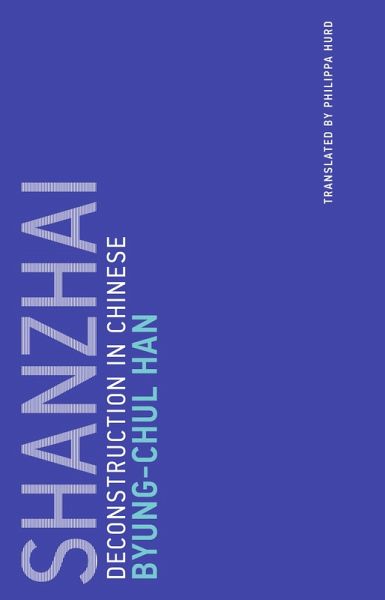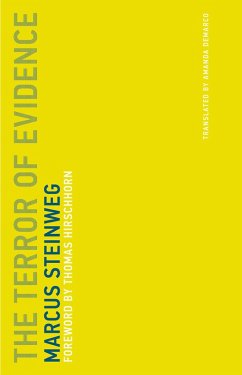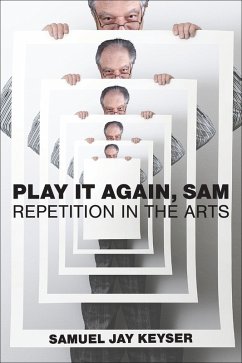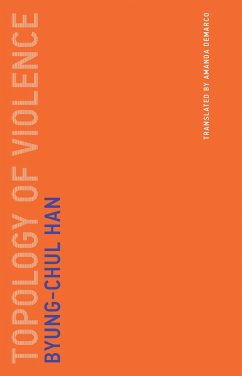
Shanzhai (eBook, ePUB)
Deconstruction in Chinese
Übersetzer: Hurd, Philippa

PAYBACK Punkte
5 °P sammeln!
Tracing the thread of decreation in Chinese thought, from constantly changing classical masterpieces to fake cell phones that are better than the original.Shanzhai is a Chinese neologism that means fake, originally coined to describe knock-off cell phones marketed under such names as Nokir and Samsing. These cell phones were not crude forgeries but multifunctional, stylish, and as good as or better than the originals. Shanzhai has since spread into other parts of Chinese life, with shanzhai books, shanzhai politicians, shanzhai stars. There is a shanzhai Harry Potter: Harry Potter and the Porc...
Tracing the thread of decreation in Chinese thought, from constantly changing classical masterpieces to fake cell phones that are better than the original.
Shanzhai is a Chinese neologism that means fake, originally coined to describe knock-off cell phones marketed under such names as Nokir and Samsing. These cell phones were not crude forgeries but multifunctional, stylish, and as good as or better than the originals. Shanzhai has since spread into other parts of Chinese life, with shanzhai books, shanzhai politicians, shanzhai stars. There is a shanzhai Harry Potter: Harry Potter and the Porcelain Doll, in which Harry takes on his nemesis Yandomort. In the West, this would be seen as piracy, or even desecration, but in Chinese culture, originals are continually transformeddeconstructed. In this volume in the Untimely Meditations series, Byung-Chul Han traces the thread of deconstruction, or decreation, in Chinese thought, from ancient masterpieces that invite inscription and transcription to Maoisma kind a shanzhai Marxism, Han writes.
Han discusses the Chinese concepts of quan, or law, which literally means the weight that slides back and forth on a scale, radically different from Western notions of absoluteness; zhen ji, or original, determined not by an act of creation but by unending process; xian zhan, or seals of leisure, affixed by collectors and part of the picture's composition; fuzhi, or copy, a replica of equal value to the original; and shanzhai. The Far East, Han writes, is not familiar with such pre-deconstructive factors as original or identity. Far Eastern thought begins with deconstruction.
Shanzhai is a Chinese neologism that means fake, originally coined to describe knock-off cell phones marketed under such names as Nokir and Samsing. These cell phones were not crude forgeries but multifunctional, stylish, and as good as or better than the originals. Shanzhai has since spread into other parts of Chinese life, with shanzhai books, shanzhai politicians, shanzhai stars. There is a shanzhai Harry Potter: Harry Potter and the Porcelain Doll, in which Harry takes on his nemesis Yandomort. In the West, this would be seen as piracy, or even desecration, but in Chinese culture, originals are continually transformeddeconstructed. In this volume in the Untimely Meditations series, Byung-Chul Han traces the thread of deconstruction, or decreation, in Chinese thought, from ancient masterpieces that invite inscription and transcription to Maoisma kind a shanzhai Marxism, Han writes.
Han discusses the Chinese concepts of quan, or law, which literally means the weight that slides back and forth on a scale, radically different from Western notions of absoluteness; zhen ji, or original, determined not by an act of creation but by unending process; xian zhan, or seals of leisure, affixed by collectors and part of the picture's composition; fuzhi, or copy, a replica of equal value to the original; and shanzhai. The Far East, Han writes, is not familiar with such pre-deconstructive factors as original or identity. Far Eastern thought begins with deconstruction.
Dieser Download kann aus rechtlichen Gründen nur mit Rechnungsadresse in A, B, BG, CY, CZ, D, DK, EW, E, FIN, F, GR, HR, H, IRL, I, LT, L, LR, M, NL, PL, P, R, S, SLO, SK ausgeliefert werden.













